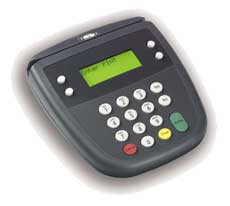Our next topic is Usability.
Usability. “I know it when I see it”.
“I shall not today attempt further to define the kinds of material I understand to be embraced within that shorthand description; and perhaps I could never succeed in intelligibly doing so. But I know it when I see it, and the motion picture involved in this case is not that.” (Emphasis supplied.) Justice Potter Stewart in Jacobellis v. Ohio, 378 U.S. 184 (1964)
Okay, I know usability sounds like something fancy, but this is nothing more than paying attention to how things work. How things work can make things easier, or more difficult for those of us who use those things. And we really do know it when we see it.
We see good and bad “usability” every day, and we notice. And we can be really frustrated by it.
To get started, let’s start “noticing“. Let’s start with telephone calls. Next time, we talk about websites.
I like talking about telephone calls because telephones do not have “back” buttons or “undo” buttons. If you inadvertently hang up on someone because you pressed the wrong button, there is no “undo” or “back”. That is why doing things with telephones makes everyone a little nervous. How do you rate the telephone manufacturers, the people who design the auto-attendant messages and menus, the voice mail designers and the rest when it comes to relieving our anxieties?
Telephone calls. Pay attention to the telephone calls you make this next week.
- Would you rather talk to a live person or an “automated attendant”?
- How do you feel when you hear: “your call is important to us, please stay on the line for the next available operator”?
- If you do NOT know that extension of the person with whom you want to speak, how easy is it to find out and be connected?
- If there is a “directory” how many letters do you have to figure out how to punch into your telephone in order to identify the party?
- Do you get discouraged when the person has a long name?
- Now, how do they spell their name?
- Do you get lost entering the letters (that are really numbers) into your phone?
- How easy do they make it to find someone?
- What do you do when none of the choices (“Listen carefully as our menu choices have changed” –does that send chills down your spine or what?) do not fit what you want to do?
- What if you want to talk to 2 different people at the same organization? Do you know how to transfer yourself from one to the other (let’s just say that you leave the first one a message and want to talk to the next person, how do you do that? Can you do that?)
- I am embarrassed to say that I often hang up and call again to get to the second person
- If the message says that this call may be monitored or recorded but you do not want to be monitored or recorded, what do you do? Can you do anything? Do you have to give up your right of privacy to talk to people?
- How often do you find yourself hanging up before you got what you wanted?
Let’s say you are on the telephone and another call comes in. Do you know how to switch from the first call to the second? What happens to the first call? Are they on hold, or did you just hang up on them? Is there anything on the telephone that tells you what to do, or tells you what is happening?
- Okay, Alex, let’s take telephone calls for 200. Let’s say you are on the phone leaving a voice mail message, and you receive another call, now what do you do? If you switch from the first call to the next, what happens to the voice mail? Can you ever come back?
And the final question of the day: when you dial into a conference call with a pass code
- Do you have trouble entering all the numbers? Reading all the numbers?
- Do the instructions they give you make sense?
- Do they make you wait in order to be “placed into conference”?
- Is the new conference call service different from the last conference call system?
- which one is more “usable”?
- why do you say that?
As I said, usability: I know it when I see it. So why it is that people who design systems (that includes you and me) don’t always see it?
Next time: websites.
Oops, I think that is my phone ringing. Gotta go.




